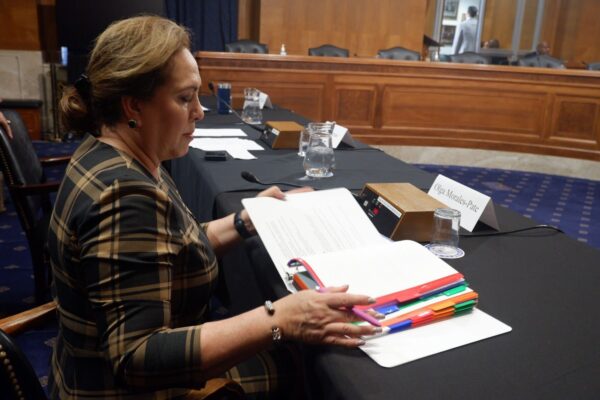Olga Morales Pate Testifies in Senate Hearing on Importance of Rural Water Infrastructure

Olga Morales Pate, CEO of the Rural Community Assistance Partnership (RCAP), testified during a U.S. Senate Committee on Environment and Public Works hearing, “Accessing Clean Water Infrastructure Assistance: Small, Rural, Disadvantaged, and Underserved Communities,” on November 8.
In the hearing, several rural water infrastructure topics were discussed, including flexibility and grants.
“I would stress the importance of considering grants to really be talking about long term solutions for rural America,” Morales Pate told the senators. “Grants and programs enable nonprofit organizations like the RCAP network to provide pro bono services, like technical assistance, to rural communities. Often, these communities’ infrastructure is run by volunteers who need additional support to access federal and state grants, meet standards, and understand the range of choices their communities can make to ensure that infrastructure is sustainably maintained. Grants and programs also directly impact the opportunities a community has to enact infrastructure improvements.”
In 2022, RCAP network technical assistance providers (TAPs) worked in over 1,600 small, rural, and tribal communities in every U.S. state, the territories, and on tribal territories in a variety of capacities.
Olga also discussed the barriers that communities and tribes face, as well as what could be done to make access to funding more equitable and outcomes sustainable.
“Another key barrier holding back rural water infrastructure improvements is a general lack of flexibility in how federal assistance is made available… Regardless of system structure, if additional funding streams and flexibilities are not implemented, more drinking water sources will be compromised, particularly groundwater at risk of pollution from failing septic systems,” Morales Pate said. “We will be far more effective in our mission to get assistance to those who need it most if a holistic approach is taken.”
Flexibility includes ensuring communities on non-central systems are able to access funding, increasing eligibility of funding for operations and maintenance activities in disadvantaged communities, and prioritizing grant funding versus loan financing.
Read Olga’s full testimony or watch the hearing.